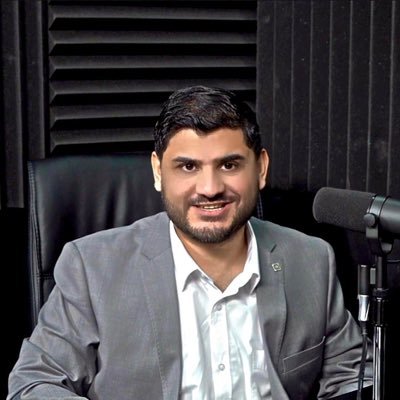BIDEN’S GAZA GENOCIDE EXPOSED w/@Maxblumenthal
The Spaces featured a discussion led by several speakers, including Max Blumenthal, as they dissect the intricacies of Middle Eastern politics, particularly focusing on the Israeli-Palestinian conflict. Max Blumenthal made headlines for challenging US Secretary of State Anthony Blinken on his complicity in actions against Gaza. The recording touches on Blumenthal's recent confrontation with Blinken, his stance against Zionism, and the broader implications of these conflicts on global perceptions of Judaism and Israel. Topics of discussion include the ceasefire agreements, the political motivations behind them, and the roles of various individuals in these geopolitical dynamics.
Analysis of Twitter Spaces Discussion
Introduction
The discussion featured a Twitter Spaces event with Max Blumenthal, highlighting his confrontation with Anthony Blinken, U.S. Secretary of State. Blumenthal, a known journalist, has been vocal against Zionist actions and the Israeli government's policies towards Palestine, notably criticizing their impact on Judaism and Zionism's distinction. The conversation explored various topics from media treatment to historical aspects of Judaism.
Key Discussions and Themes
Blumenthal's Confrontation with Blinken
- Incident Description: Max Blumenthal intervened during a press conference, challenging Blinken on his alleged complicity with Israeli actions in Gaza. Blumenthal raised questions regarding the U.S.'s support of Israel and its impact on Palestinians.
- Public Reaction: The action received wide attention, triggering both support and condemnation, highlighting issues of press freedom and political accountability.
- Subsequent Removal: Sami Husseini, another journalist, faced removal and was manhandled for attempting to question, reflecting on the suppression of press freedom.
Discussion on Journalism and Ethics
- Journalistic Courage: Blumenthal and Husseini were commended for their bold stance, regarded as representing real journalism in contrast to mainstream media's perceived compliancy.
- Suppression and Press Freedom: The discussion criticized the lack of support from other journalists in the room and the broader media's hesitance to challenge authorities vigorously.
Ceasefire and Political Implications
- Ceasefire Skepticism: Participants expressed skepticism about the ceasefire between Israel and Hamas, suspecting it may only serve temporary political purposes, with fears of hostilities resuming post-ceasefire phases.
- Future Political Climate: Concerns were raised regarding the incoming U.S. administration's position on Middle East policies and potential changes affecting Gaza.
Zionism, Judaism, and Ethnic Identity
- Debate on Ethnicity and Religion: A heated debate emerged on whether Jews constitute a racial or solely religious identity. Participants discussed the genetic, historical, and cultural aspects defining Jewish identity.
- Genetic Markers and Ethnic Identity: Some participants highlighted genetic studies showing distinct Jewish genetic markers, arguing for a unique ethnic identity.
- Cultural and Historical Arguments: Others stressed the religious origins of Jewish identity, pointing to shared practices and beliefs rather than genetic markers as the defining characteristics.
Historical Context and Anti-Semitism
- Historical Expulsions: The conversation noted the historical expulsions of Jews from various countries, with some participants attributing these behaviors to financial practices and others debating the ethics of collective punishment.
- Antisemitism Allegations: The discussion included controversial statements that were criticized for potential antisemitic overtones, highlighting the sensitivity and complexity surrounding Jewish identity discussions.
Conclusion
This session of Twitter Spaces showcases how social media platforms can serve as arenas for complex discussions, reflecting varied perspectives on geopolitical issues, identity, and media practices. Blumenthal's direct action at the press conference underscores ongoing tensions in media-government relations and the broader discourse on Middle Eastern policies. The event emphasized the complexity of Jewish identity debates and the importance of acknowledging diverse voices and perspectives in highly sensitive topics.
